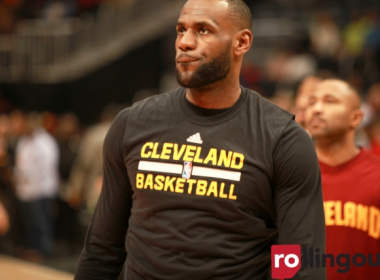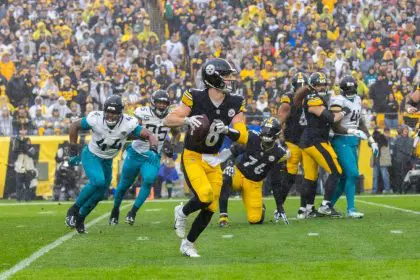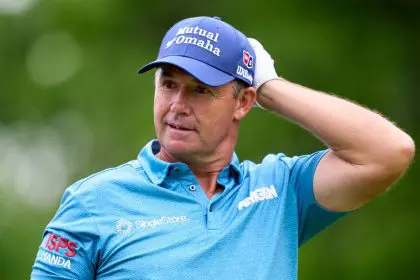
(CNN) — They were the liars. The “trolls.” The bitter, vindictive and jealous.
They were Lance Armstrong’s first and fiercest critics, frequently castigated by the once-dominant athlete and celebrity cancer survivor, shunned by sponsors, race organizers and many of the cyclist’s loyal followers.
Now, on the cusp of the broadcast of an interview in which Armstrong is said to finally acknowledge what he had fiercely denied for years — that he used performance-enhancing substances — they are finally feeling vindicated.
“He was Tony Soprano,” author Dan Coyle, who wrote a book about Armstrong, told CNN’s Anderson Cooper. “When you crossed him, he cut you dead. You were gone. The question is, is he going to apologize to the people he hurt along the way? ”
Former Armstrong teammate Frankie Andreu also talked about Armstrong’s wrath
“Anybody that crossed his path or didn’t go along with his plan, he set out to take them down. And he was very powerful and influential and did take them down,” Andreu told ESPN radio host Colin Cowherd on Tuesday.
“So it’s kind of a big turnaround, it’s a big surprise now with him going on ‘Oprah’ and supposedly admitting to doping during his career, which of course he’s always denied,” Andreu said.
Winfrey, appearing on “CBS This Morning,” appeared to confirm media reports Tuesday that Armstrong acknowledged using performance enhancing substances in his interview with her.
She didn’t reveal details of his statements, which will run on her OWN cable network and on the Internet on two nights beginning Thursday.
Armstrong has long denied using performance enhancers during what had been a record-setting cycling career. But in a scathing report last year, the U.S. Anti Doping Agency accused him of being at the heart of a sophisticated doping program.
Andreu and his wife, Betsy, say they fell into disfavor with Armstrong after testifying in an arbitration case filed against Armstrong by a company seeking to avoid paying out bonuses to him for race victories during which he was accused of doping.
In their testimony, they told of a 1996 incident in an Indianapolis hospital room in which, they said, Armstrong told doctors treating him for cancer that he had taken a variety of performance enhancing drugs.
“After that, it was all-out attack, war on my wife and I,” Andreu told Cowherd. “They ripped us apart. I lost a lot of jobs, lost a lot of money. It’s been a very long, long fight. Now things are changing.”
Betsy Andreu said she was pressured to sign a statement disavowing the story, and when she refused, she was “vilified.”
“I became, in Lance’s words, ‘bitter’ and ‘vindictive’ and ‘jealous,'” she said in an affidavit included in the USADA report.
She recently told CNN’s Anderson Cooper that her husband’s career fell apart and the couple felt intimidated.
“If he wants to send a message and bully you, he can intimidate you and be very, very mean,” she said.
She said she wasn’t sure what to make of Armstrong’s pending acknowledgment.
“The person you see is the image he wants you to see,” she said. “He’s a chameleon.”
Other Armstrong critics also are likely to be watching the interview closely.
Armstrong’s former masseuse and personal assistant, Emma O’Reilly, told CNN last year that she went through “two and a half to three years of hell” after first speaking out about doping.
“I got subpoenaed, I got … kind of ostracized. And just the stress levels,” she said. “… And all for telling the truth. As well as feeling feelings of guilt because I knew then that there were certain people now who would not speak to me again, and have never spoken to me again, and it’s a shame because I lost those friendships.”
Former Armstrong teammate Tyler Hamilton also accused Armstrong and others in cycling of intimidating him into staying quiet about his own doping, which he finally admitted in 2011.
“I believed that was my only way back into the sport,” he said. “It is a bit of a mafia. It’s a powerful group. You can say the wrong thing, and next thing you know. …”
Another former teammate, Paul Willerton, said redemption will be tough for Armstrong to earn.
“When you sue people that you know are telling the truth, that is really difficult to forgive,” he said.
David Walsh, a British journalist who co-wrote a book that detailed the allegations against Armstrong, said a confession “won’t be enough.”
“He’s got to make reparations to the people he wronged. He’s got a lot of apologizing to do,” Walsh said.
Walsh’s book prominently featured O’Reilly’s accounts of doping in the cycling world. Armstrong later sued over the book, including a libel lawsuit against The Sunday Times, which published excerpts. The Times is now suing to recover the settlement it paid Armstrong in the case.
“My feeling is that he came forward because he’s been in a pretty bad place since the truth has emerged, and the only way that he can rebuild to begin his life is to make a full confession of all the things he did,” Walsh said.
Unlike some of the other critics, Walsh said he didn’t feel any vindication at Armstrong’s expected about-face. But he said he feels “tremendous satisfaction for the people who helped me,” people he said told the truth “at great cost to themselves.”
“They were vilified. Their characters were assassinated, and they were in a bad place,” he said. “Betsy Andreu has said she spent 13 years telling people she wasn’t a liar, and that’s a very difficult place to be.”
Next month, Walsh will have the catbird seat when he takes part in a university symposium in Leeds, United Kingdom. There he’ll discuss his years of reporting on Armstrong, reporting that appears to have finally caught up with the onetime star.
The event is called, simply, “The Pursuit of Lance Armstrong.”
Willerton, Armstrong’s former teammate, says he’s just glad the truth appears to be finally coming out.
“We have Lance Armstrong versus cancer. We had Lance Armstrong versus everyone in the Tour de France. But Lance Armstrong versus the truth? That’s one that he really couldn’t win in the end.”








